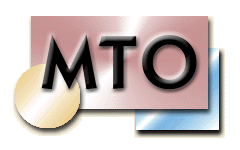Music Theory Online
A Journal of Criticism, Commentary, Research, and Scholarship

Music Theory OnlineA Journal of Criticism, Commentary, Research, and Scholarship |
 |
Volume 7, Number 5, October 2001
Copyright © 2001 Society for Music Theory
Fulcher, Jane F., ed. Debussy and His World. Princeton University Press.
For Members of Princeton University Press's E-mail List for Music European History
We are pleased to send you the following information about this newly published book:
Debussy and His World
Edited by Jane F. Fulcher
http://www.pup.princeton.edu/titles/7166.html
Claude Debussy's Paris was factionalized, politicized, and litigious. It was against this background of ferment and change-which characterized French society and music from the Franco-Prussian War to World War I-that Debussy re-thought music. This book captures the complexity of the composer's restless personal and artistic identity within the new picture emerging of the musical, social, and political world of fin-de-sicle Paris.
Debussy's setting did not simply mold his style. Rather, it challenged him to define a style and then to revamp it again and again as he situated himself simultaneously via the present and the past. These essays trace Debussy's perpetual reinvention, both social and creative, from his earliest to his last works. They explore tensions and contradictions in his best-known compositions and examine lesser-known pieces that reveal new aspects of Debussy's creative appropriation from poetry, painting, and non-Western music.
The contributors reveal the extent to which Debussy's personal and professional lives were intertwined and sometimes in conflict. Belonging to no one group or class, but crossing many, Debussy abjured the orthodox. A maverick who reviled all convention and searched for a music that authentically reflected experience, Debussy balked at entering any situation-salons, musical societies, or factions-that would categorize and thus distort him. Because of this, music lovers still argue over the degree to which Debussy's music is Impressionist, symbolist, or even French. Aptly, the volume's editor reads Debussy's last works as a dialogue with himself that reflects his inherently pluralistic, paradoxical, negotiated, and ever-changing identity.
William Austin's description of Debussy as "one of the most original and adventurous musicians who ever lived" is often repeated. This book illustrates how right Austin was and shows why Debussy's unclassifiable art continues to fascinate and perplex his historians even as it enthralls new listeners. The contributors are Leon Botstein, Christophe Charle, John Clevenger, Jane F. Fulcher, David Grayson, Brian Hart, Gail Hilson-Woldu, and Marie Rolf.
Jane F. Fulcher is Professor of Musicology at Indiana University. She is the author of The Nation's Image: French Grand Opera as Politics and Politicized Art, French Cultural Politics and Music from the Dreyfus Affair to the First World War, and Composers, Intellectuals, and Politics in France from the First to the Second World War (forthcoming). She has served as Directeur d'Etudes Associe at the Ecole des Hautes Etudes en Sciences Sociales in Paris and Directeur de Recherches at the Centre Nationale de la Recherche Scientifique in Paris.
The Bard Music Festival
0-691-09042-4 Paper $22.95 US L15.95 UK
0-691-09041-6 Cloth $55.00 US L37.95 UK
350 pages. 6 x 9.
If you wish to place an order, we encourage you to do so through your local bookseller. If that is not possible, you can order through our website by clicking on the link above.
Copyright Statement
[1] Music Theory Online (MTO) as a whole is Copyright © 2001, all rights reserved, by the Society for Music Theory, which is the owner of the journal. Copyrights for individual items published in MTO are held by their authors. Items appearing in MTO may be saved and stored in electronic or paper form, and may be shared among individuals for purposes of scholarly research or discussion, but may not be republished in any form, electronic or print, without prior, written permission from the author(s), and advance notification of the editors of MTO.
[2] Any redistributed form of items published in MTO must include the following information in a form appropriate to the medium in which the items are to appear:
This item appeared in Music Theory Online in [VOLUME #, ISSUE #] on [DAY/MONTH/YEAR]. It was authored by [FULL NAME, EMAIL ADDRESS], with whose written permission it is reprinted here.
[3] Libraries may archive issues of MTO in electronic or paper form for public access so long as each issue is stored in its entirety, and no access fee is charged. Exceptions to these requirements must be approved in writing by the editors of MTO, who will act in accordance with the decisions of the Society for Music Theory.
prepared by
Rusty Jones, editorial assistant
Updated 14 November 2002